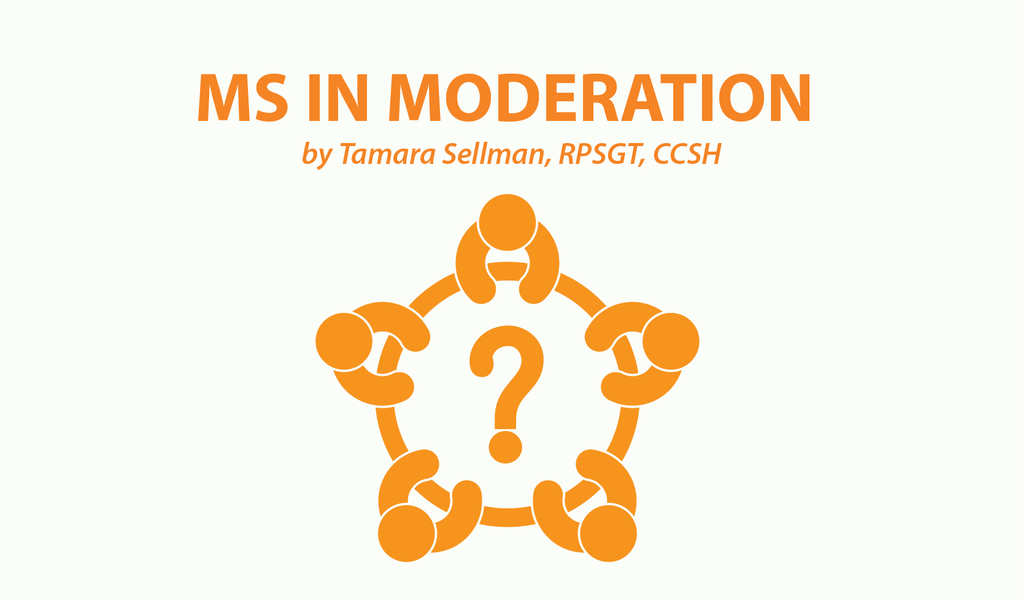The MS Alphabet, Part 2 of the Letter ‘G’: Gilenya, Genetic, Glial Cells, and More


(Editor’s note: Tamara Sellman continues her occasional series on the MS alphabet with the second of two columns about terms starting with the letter “G.” Read more “G” terms here.)
Mastering an understanding of multiple sclerosis means you need to mind your Ps and Qs, dot your Is, cross your Ts, and recite your ABCs. There is so much to know about this complex disease. But the more you know as a patient or caregiver, the more informed you will be in making critical healthcare decisions.
This week, I offer several more terms starting with the letter “G” that you might want to master.
Symptoms of MS
Gastroparesis
This condition of the gastrointestinal tract describes problems with the stomach being unable to empty itself at a normal pace due to muscular dysfunction.
For people with MS, this usually is due to nerve damage, namely the vagus nerve, which regulates digestion. This explains why people with MS often feel hungry and full at the same time, and why they have digestive problems like constipation.
MS abbreviations
GM-CSF (granulocyte macrophage colony-stimulating factor)
Researchers study GM-CSF to develop more therapies that can impede its damaging presence in the central nervous system.
This is a cytokine (derived from a subgroup of T-cells, part of the immune system that promotes nerve damage) that is responsible for triggering brain inflammation.
Research shows that increases in production of GM-CSF in the brain leads to activation of the disease course known as demyelination. It also shows that people who cannot generate GM-CSF do not develop multiple sclerosis.
Common MS terms
Genetic
Genetics refers to all living processes related to genes, the building blocks of all life forms. But the term is more complicated than this. Genetics do not refer only to the inheritance of certain genes. Other genetic components include such ideas as propensity.
Is there a genetic component to multiple sclerosis? A genetic expression of multiple sclerosis, as studied in the recent wave of neuroscience focused on genetics, still has to determine this. However, it’s unclear whether “family history” of MS is a genetic guarantee it will recur in the offspring of people who have MS.
Use of the GHR (Genetics Home Reference) by patients can help them better understand the language of genetics and how it applies to multiple sclerosis.
The biology of MS
Glial Cells
Glial cells are a brain’s best friend! They maintain and support the central nervous system (CNS). There are more glial cells than neurons (up to 10 times as many). Glial cells that you might already know something about include oligodendrocytes and astrocytes.
Glial cells can perform some remyelination of damaged nerve cells and also help lay down scar tissue to promote healing of active lesions. They also supply important chemicals to our brain cells, as well as clean out dead cells and debris from the CNS.
Scientists used to believe it was the activity of glial cells that helped strengthen the blood brain barrier (BBB). However, recent research shows that this task is more likely a role assumed by the endothelial cells.
MS treatments
Gilenya
This immunosuppressive therapy is an oral treatment used to prevent or delay multiple sclerosis disease progression. See fingolimod.
Stay tuned for more columns about the MS alphabet.
***
Note: Multiple Sclerosis News Today is strictly a news and information website about the disease. It does not provide medical advice, diagnosis, or treatment. This content is not intended to be a substitute for professional medical advice, diagnosis, or treatment. Always seek the advice of your physician or other qualified health provider with any questions you may have regarding a medical condition. Never disregard professional medical advice or delay in seeking it because of something you have read on this website. The opinions expressed in this column are not those of Multiple Sclerosis News Today, or its parent company, Bionews Services, and are intended to spark discussion about issues pertaining to multiple sclerosis.







Joy Russell
I'm hesitant about taking oral medications for my MS since the fiasco I had while on Tecfidera. What was Gilenya's First projected use? Was it even a Medication? Certain/many medications that are being prescribed were "founded" in someone's garage for goodness sake.
I know injections aren't happy alternatives, but at least Copaxone hasn't caused my gastrointestinal system to shut down and become Septic. I don't want to be another statistic.
Tamara
Hi Joy,
Sorry to hear about your problems with Tecfidera. That is the medication I have been using for 4+ years.
I personally don't have deep knowledge of Gilenya as a healthcare professional or as a user, so I'm probably not the best person to ask. I'm just simply reporting the details of our condition for those looking for information.
You could certainly start by asking around in MS forums, or you could even ask your doctor. They probably should have shared that information with you at the onset of your prescription, it seems.
As for the origins of medications, I cannot speak to it for Gilenya, but I know that Tec has been used for decades to treat a form of psoriasis (also autoimmune), and the way it addressed immune system responses in those patients clued researchers in on a possible use for it with those who have MS. So I would definitely not say it was created in someone's garage. Quite the opposite.
If you are having good luck with Copaxone, then you should probably stay on with it.
But let's be fair to those who use oral medications and have found they work for them... there is no single medication that will work for all MS patients, and if one fails to help you, that doesn't mean anything except that you need to find another.
One of my best friends with MS is now on Gilenya after trying every single other treatment and it's working for her, last I checked. You just never know.
Good luck!